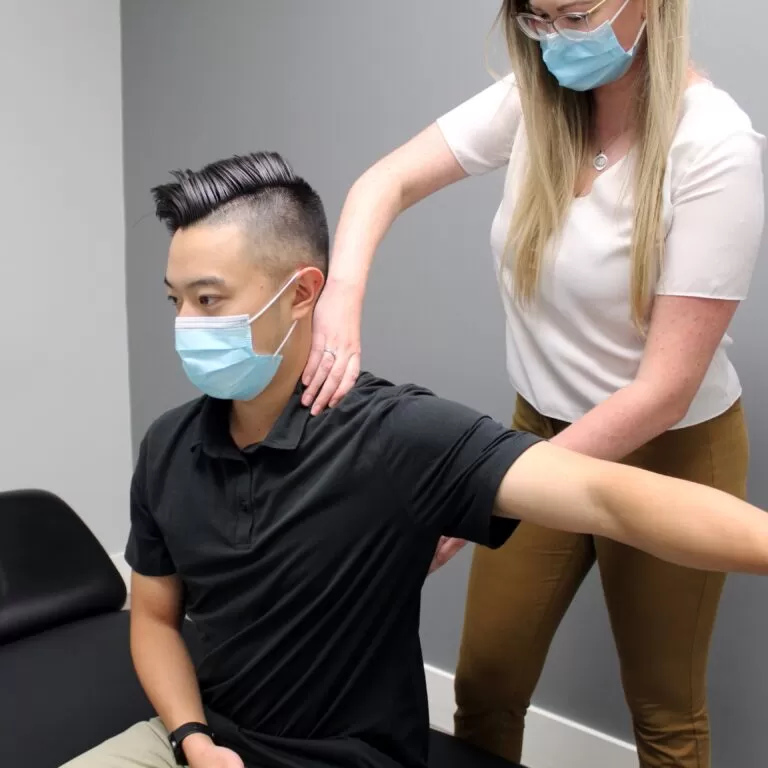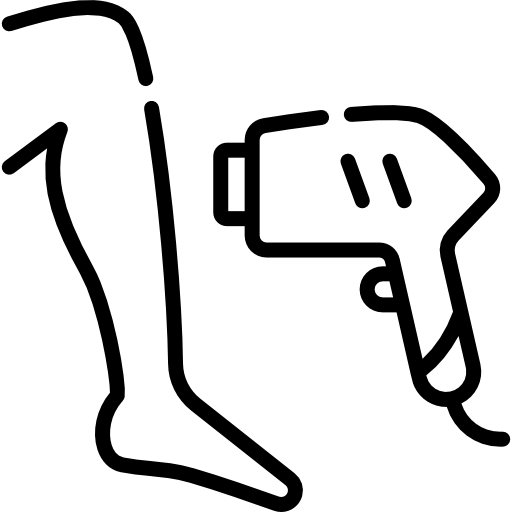Pelvic floor physiotherapy is a specialized area of practice focusing on the assessment and treatment of conditions involving the pelvic floor. At Encompass Sports Therapy, our team can help you regain your confidence and control with pelvic floor physiotherapy in Calgary.
Our physiotherapists are specially trained to restore function and ease pain arising from pelvic floor dysfunction. On your first visit, our physiotherapist will ask you questions about your condition and perform a thorough physical exam which may include an internal exam component. This will allow for the most comprehensive understanding of the condition to ensure that it is addressed thoroughly. A treatment plan is then designed between the practitioner and patient, through careful consideration of patient-specific goals and their condition. Treatments vary widely between individuals but may include education and guidance, bladder retraining, IMS/dry needling, exercises to strengthen or down-train the pelvic floor, and manual therapy.
Research has shown a direct relationship between pelvic floor dysfunction and low back and hip pain. Pelvic floor physiotherapy can be a good adjunct to chiro/physio/massage/osteopathy for patients experiencing persistent hip and/or low back pain.
At Encompass Calgary, we understand that conditions related to pelvic health are sensitive. Our practitioners are here to listen and adapt to your concerns, focus on your goals, and help you regain confidence and control. Pelvic floor physiotherapy aims to enable patients to improve upon and better manage many conditions.

Urinary stress incontinence, frequency, and urgency are terms used to describe bladder dysfunction. Stress incontinence means that there is leakage (mild-severe) often associated with a stressful force (sneezing, jumping, laughing, coughing). Urgency refers to a sudden compelling desire to urinate, with or without leakage. Frequency is a complaint of having to urinate too often during the day or night.
Bowel incontinence, urgency and frequency are common problems affecting the bowel. Bowel incontinence means that you have an involuntary loss of stool or gas from the anus. Urgency refers to an overwhelming feeling that you need to pass a bowel movement. Frequency is defined as having at least three bowel movements each day.
The pelvic floor comprises the muscles that form the base of the pelvis and wraps around to support the bladder and rectum. The pelvic floor muscles are often missed as a source of pain and muscle tension. They can also contribute to pain in other areas including the low back, hips, groin or sacrum.
Pelvic floor physiotherapy is the treatment option for women with painful intercourse. It helps determine the root cause of painful intercourse, which is usually multifactorial but can often be attributed to pelvic floor dysfunction.
Pelvic organ prolapse is a condition in which involves one or more pelvic organs (bladder, uterus, or rectum) dropping down and may or may not protrude into the vaginal opening. It is caused by weakening of the connective tissues that support the pelvic organs.
Pregnancy, childbirth and delivery can affect the pelvic floor muscles. Pelvic floor physiotherapy is an effective way to help women regain their strength and control in their core and pelvic floor after pregnancy and birth. It can also be beneficial in improving overall pelvic health.










No posts found!
Pelvic floor physiotherapy is a specialized area of physiotherapy. It is different from normal physiotherapy as it focuses on the muscles that support and hold up your pelvic floor, bladder and rectum. Practitioners require special training and equipment to perform pelvic floor physiotherapy. It addresses common conditions including pelvic, low back, and hip pain, constipation, painful intercourse, pre and post partum, and incontinence (urinary or bowel).
Pelvic floor initial assessment- $155 (60 mins) and pelvic floor subsequent visit- $115 (45 mins)
Pelvic floor physiotherapy may cause some mild discomfort during treatment. Your physiotherapist will adjust or modify treatment as necessary to ensure the patient is as comfortable as possible. There should be no soreness or pain that persists over 24 hours.
The treatment is designed to assess the root cause of the problem to properly address and treat the symptoms. Some patients experience an improvement of their symptoms in the first couple of sessions, but the process can take longer. The length of time will depend on the severity of symptoms, the duration of the symptoms, and your commitment to therapy and the home exercise program.
Pelvic floor physiotherapy is a treatment that focuses on the muscles of the pelvic floor, which are responsible for supporting your bladder, bowel and uterus. If you have been experiencing any of the conditions in question 1, or would like to be proactive with your pelvic health, then you may consider seeing a certified pelvic floor physiotherapist.
A pelvic floor physiotherapist will take a detailed subjective history and carry out an examination that may involve both internal and external assessment. The treatment is carried out in a confidential, private room at the physiotherapy clinic. After thorough history taking and objective examination, your therapist will discuss a plan to address your issues and provide treatment based on the assessment findings.